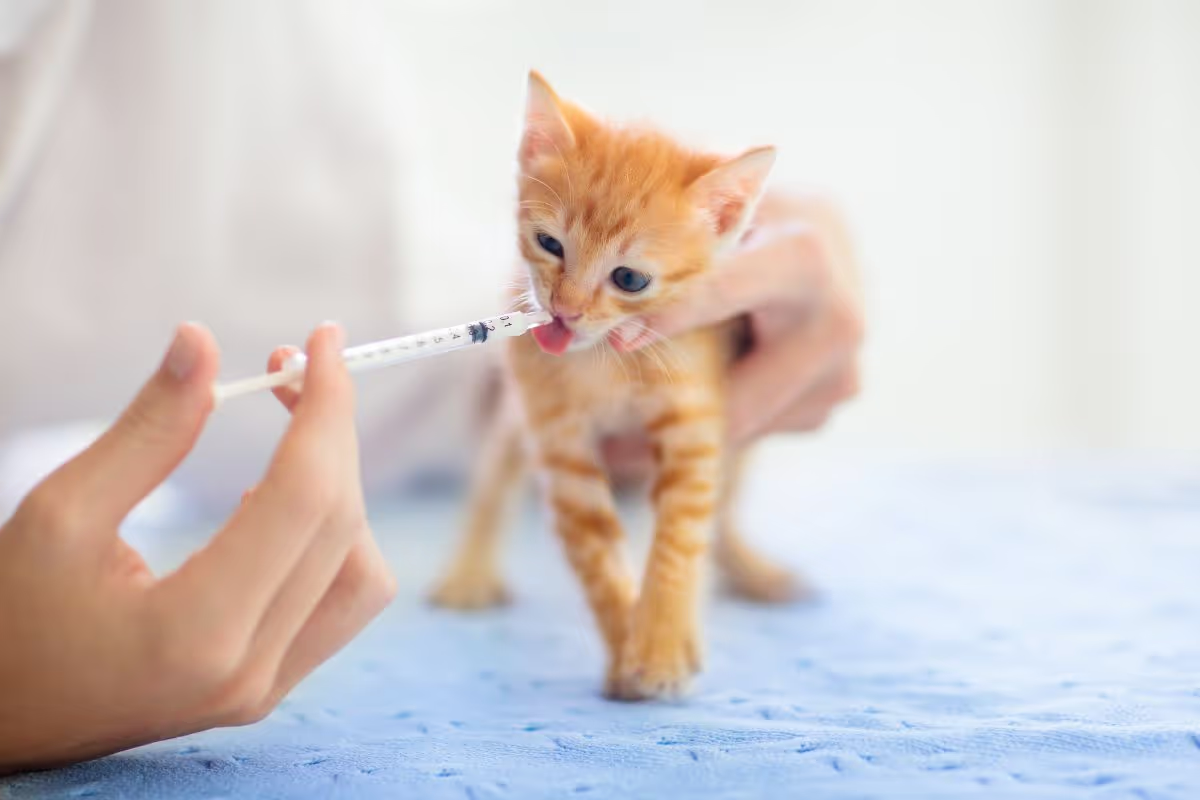Welcoming a new kitten into your home is like adding a furry little bundle of joy to your family. Those tiny paws and curious little faces melt hearts instantly. However, the journey of kitten parenthood is sprinkled with its share of challenges. While watching your new kitten explore their surroundings is pure magic, there are also critical mistakes that can lead to issues down the road.
Understanding how to care for your new feline friend is essential for ensuring they grow up healthy and happy. From choosing the right diet to providing the proper environment, the decisions you make in these early days are crucial. Believe it or not, even the smallest oversight can lead to bigger problems later on.
Avoiding these common pitfalls isn't just about keeping your kitten safe; it's also about laying the foundation for a loving, lasting relationship. So, whether you're a first-time pet owner or have experience with cats, it’s time to dive into the 5 critical mistakes you’ll want to steer clear of when caring for your new kitten. With a little guidance, you can transition smoothly into the wonderful world of kitten care and turn those adorable antics into a lifetime of cherished memories. Let’s explore what to watch out for!
1. Skipping the Vet Visit

One of the most critical mistakes you can make as a new kitten owner is skipping that all-important vet visit. It might seem tempting to let things slide for a bit—after all, kittens are playful creatures ready to explore. However, a vet check-up is essential for your kitten's health.
Kittens are vulnerable to various illnesses, some of which can be serious. An initial visit ensures your furry friend is in good shape and allows the vet to administer necessary vaccinations. These vaccines protect against diseases like feline distemper and herpesvirus, which can have severe consequences. Plus, your vet can check for parasites like fleas or worms that could affect your kitten's well-being.
Beyond vaccinations, your vet can provide valuable advice on spaying or neutering your kitten. This procedure not only helps control the pet population but also benefits your kitten’s health in the long run. Getting these recommendations early sets you on the right path as a kitten parent.
2. Ignoring Their Diet Needs
Kittens have unique dietary requirements that differ significantly from adult cats. Failing to provide the proper nutrition can lead to various health issues down the line. But it's not just about picking up any cat food at the store; it's about understanding what a growing kitten needs.
Kittens require a diet rich in high-quality protein to support their rapid growth and energy needs. Look for formulas specifically designed for kittens, as they contain the right balance of vitamins, minerals, and fats. A diet that lacks these essential nutrients can result in developmental delays or health problems. Ensure the kitten food you choose lists meat proteins as the first ingredient—it's a surefire way to set your little one up for a healthy start.
Additionally, consider portion control. Kittens tend to overeat if given the chance, leading to obesity. Instead, feed small, frequent meals throughout the day. Consult with your veterinarian about feeding schedules to determine how much food your kitten needs.
One Pass That Does It All. Get Out And Play!

3. Underestimating the Importance of Socialization
Socialization plays a vital role in a kitten’s life. Some people think kittens will naturally adjust to their environment without extra effort. But underestimating this crucial phase can lead to timid or overly aggressive adults.
Start socializing your kitten as soon as you bring them home. Provide them with safe, positive experiences in different situations. Gently introduce them to various sounds, people, and environments. Allow them to meet family members slowly and don’t rush the process. Each positive interaction helps build their confidence and reduces the chances of behavioral issues later.
For example, expose your kitten to loud noises gradually, like a vacuum cleaner or a doorbell. Reward them with treats for calmly facing these noises, creating a comforting association rather than fear. Inviting friends over to interact with your kitten can also show them that humans aren't scary.
Moreover, consider allowing your kitten to meet other pets in your home. Supervised introductions will help them learn positive social behaviors. Keep interactions short and fun to avoid overwhelming them. The prime socialization window is from 2 to 9 weeks, so don't miss out on this critical time to mold your kitten into a well-adjusted member of your family.
4. Assuming They Won't Claw Furniture

Ah, the age-old debate of kittens and clawing. Many new kitten parents fall into the trap of assuming their little furballs won’t scratch up the furniture. Unfortunately, kittens naturally have a strong urge to claw due to their instinctual behavior, so it's better to prepare than to assume.
Kittens need to sharpen their claws, stretch their muscles, and relieve stress—clawing is a part of cat life! So, why not provide them with designated scratching posts instead? Cat trees, scratch pads, or even a simple cardboard box can satisfy this instinct while saving your couch from furry destruction.
When selecting a scratching post, consider both texture and height. Different materials—like sisal, carpet, or cardboard—will appeal to different kittens. Make sure the post is sturdy enough to withstand vigorous scratching. Encourage your kitten to use the post by placing treats or catnip on or around it. You can also gently guide their paws to the post to show them where it's acceptable to scratch.
5. Forgetting About Litter Box Training
Litter box training might seem straightforward, but many new kitten owners overlook its significance. Forgetting about litter box etiquette can lead to mess and frustration for everyone involved. Fortunately, getting it right is typically simpler than it seems!
Start by providing a clean, accessible litter box filled with the right type of litter. Most kittens prefer unscented, clumping litter, as it mimics the natural ground they would use in the wild. Place the box in a quiet area where your kitten won’t feel disturbed, away from their food and water bowls. This encourages them to feel comfortable going about their business without feeling stressed.
Introduce your kitten to the litter box soon after bringing them home. Gently place them in the box after meals or when they wake up—kittens tend to need to go after these activities. Watch for signs that they need to relieve themselves, and be proactive about guiding them to the box.
Conclusion
Caring for a new kitten is an adventure filled with delightful moments and adorable antics. But with great joy comes great responsibility. By being aware of these five critical mistakes to avoid, you set the stage for a harmonious relationship with your furry friend.
With the right approach, you'll create a loving, nurturing environment for your kitten to thrive. Before you know it, your tiny furball will grow into a confident and happy cat, bringing years of joy into your life. So, buckle up for this incredible journey!


































.svg)
.jpg)
.jpg)
.jpg)